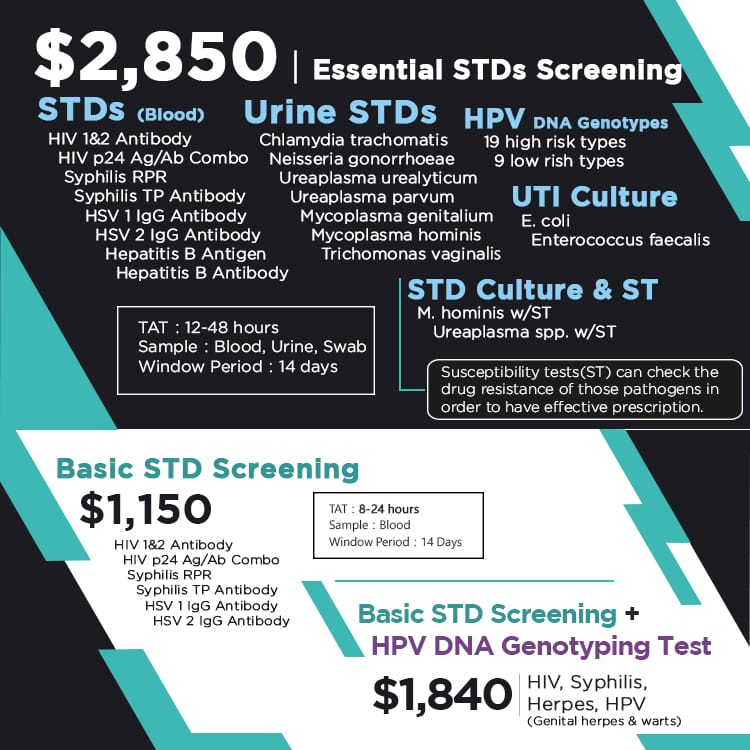
STD Test, Symptoms and Treatment for Men and Women in HK
Sexually transmitted diseases (STDs) remain a significant public health concern in Hong Kong, with rising cases of chlamydia, gonorrhea, and syphilis reported in recent years. According to the Centre for Health Protection, Hong Kong has seen a 25% increase in syphilis cases and steady rises in other STDs between 2018-2022. Understanding common STD symptoms, testing options, and treatment availability is crucial for maintaining sexual health in our city.
Common STDs in Hong Kong
STDs include a variety of diseases, which includes:
Urban Medical provides STD testing and treatment, with advantages of
- 8-24 hours Express results, No Extra Fee is needed.
- free professional consultation services to explain and provide assistance before testing.
- ensuring the success rate of sample-taking procedure, HPV sample will be taken by well-trained staff.
- ensuring the privacy, convenience, safety and avoid embarrassment , we provide our own washroom for patients to leave urine sample.
- Prepayment or deposit is not required. Payment is settled after the sample collection.
Causes of STD
STDs are generally caused by bacteria, viruses or parasites.
Chlamydia
Most common bacterial STD in Hong Kong, particularly among young adults aged 20-29. The incubation period is about 7 to 21 days.
Symptoms in Men:
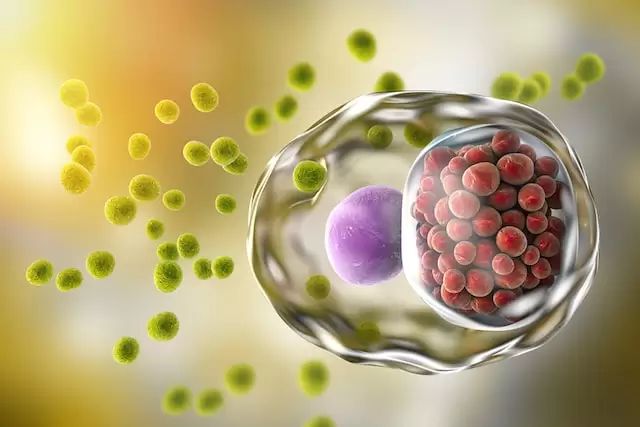
- Burning sensation during urination
- White, cloudy, or watery discharge from penis
- Testicular pain or swelling
Symptoms in Women:
- Unusual vaginal discharge (yellow/green)
- Burning when urinating
- Pelvic pain, especially during intercourse
- Bleeding between periods
Around 50% of male and 70% of female patients have no obvious symptoms, resulting in a large number of positive cases not being tested and receiving timely treatment. Delays and neglect of treatment can lead to serious complications.
Available Chlamydia Test
- Chlamydia trachomatis DNA Test | $690
- Urine STI Packages | $1650
Gonorrhea
Second most common bacterial STD in Hong Kong, with increasing antibiotic resistance. Common symptoms of gonorrhea generally include:
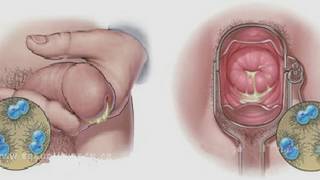
Symptoms in Men:
- White, yellow, or green discharge from penis
- Painful urination
- Swollen or painful testicles
Symptoms in Women:
- Increased vaginal discharge
- Painful urination
- Vaginal bleeding between periods
- Abdominal or pelvic pain
10% of male and 50% of female patients have no obvious symptoms, resulting in a large number of positive cases not being tested and timely treatment.
Gonorrhea Test
- Neisseria gonorrhoeae DNA test | $690
- Urine STI Packages | $1650
Syphilis
Showing concerning increases in Hong Kong, particularly among MSM (men who have sex with men).
Syphilis infection can be divided into four stages(Symptoms):
Primary Stage (3-90 days after exposure):
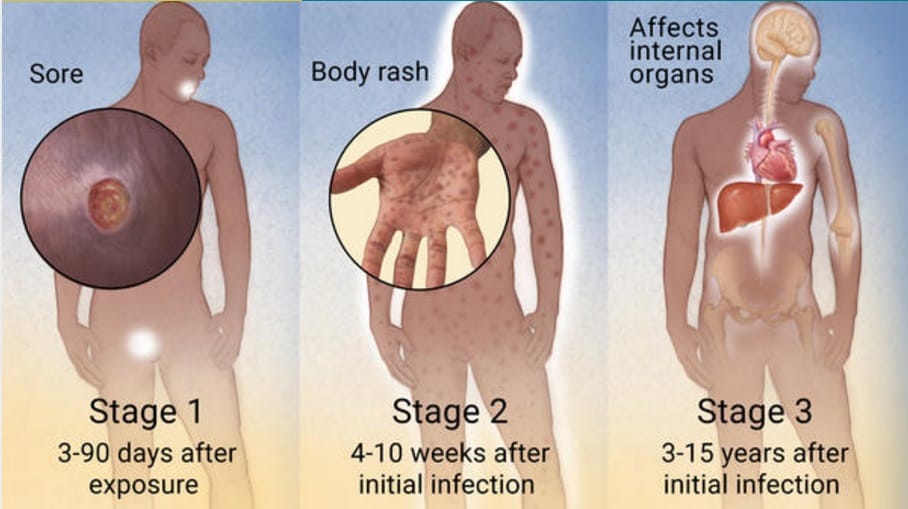
- The place where the virus enters the body includes one or more painless ulcers (chancres) in the anus or oral cavity of the sex organs
- Syphilis ulcers can last for three to six weeks without medication and can recover and heal
- If the patient is not treated and treated in time, he will enter the second stage of syphilis infection
Secondary Stage (4-10 weeks):
- The patient will have different symptoms including fever, neck and genital lymphatic swelling, pain, headache, joint pain, muscle aches, fatigue, and rashes on the palms and feet
- Gray-white verrucous lesions appear on warm and humid parts of the body, including the genitals or oral cavity
- Most symptoms will disappear without treatment
- If the patient is not treated and treated in time, he will enter the recessive phase of syphilis infection
Latent Stages:
- Recessive syphilis infection can last for many years. During the incubation period of syphilis, the patient will not have visible symptoms of syphilis.
- If patients do not receive treatment, about 30% of patients will develop third-stage syphilis infection
Tertiary Stages:
- The third stage syphilis infection is very serious and can appear 10 to 30 years after infection, and severe cases can lead to death
- The third-stage syphilis infection affects and destroys different organs of the body, including the brain, eyes, heart, blood vessels, liver, bones and joints, as well as the nervous system
Available Syphilis Tests
HIV/AIDS
AIDS is caused by the HIV virus. The HIV virus destroys the human immune system, making the patient's body unable to normally resist disease invasion. People infected with the HIV virus may still be in good health for several years, but after a certain period of time, the infected person will contract certain special diseases as the immune system weakens, such as opportunistic infections or malignant tumors. By then he became an AIDS patient.
HIV Symptoms for early stage
During acute HIV infection, some people may experience flu-like symptoms 2-4 weeks after HIV infection. The symptoms may last for a few days to several weeks, which may include:

- Fever
- Chills
- Headache
- Rash
- Night sweats
- Muscle pain
- Swollen lymph nodes
- Sore throat
- Mouth ulcers
- Fatigue
- Diarrhea
These symptoms are non-specific and not everyone will exhibit symptoms during acute HIV infection. Around 50% of AIDS-infected people have no acute symptoms in the initial stage. If you think you have been exposed to HIV, the only way to know for sure is to get HIV tested.
HIV Tests
- HIV p24 Ag/Ab Combo Test | $390 , 8-16 hours turnaround time
- HIV RNA Quantitative Test | $1450 , 8-12 hours turnaround time
- HIV 1/2 Ab Quick | $320
HPV (genital warts)
It is caused by some type of HPV infections, eg. HPV-6 & HPV-11. Unlike general skin warts, Genital warts are transmitted by direct skin contact and direct contact with the genitals during sexual activity (including oral sex). The general incubation period can be very long, ranging from one month to eight months, with an average of three month.
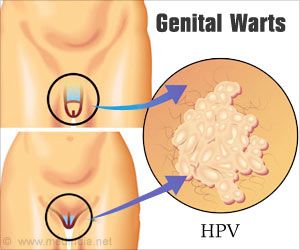
HPV Symptoms in Women
In women, genital warts can appear on :
- vulva
- urethra
- cervix
- vagina
- anus
HPV Symptoms in Men
In men, warts may appear on :
- penis
- scrotum
- anus
- thighs
Genital Warts(HPV) Test
Genital herpes (HSV)
It is commonly caused by HSV-1 or 2, it is transmitted from mucous membranes or skin wounds with herpes on the patient's genitals. The most common transmission behavior is sexual intercourse. The incubation period averages about 2 to 5 days.
Symptoms of genital herpes
In Men
- Pain or itchiness of the genitals,
- One of more small blisters around the mouth, genitals or rectum,
- The blisters can rupture and causes painful ulcers
- Inflammation of the urethra
- Inflammation of the rectum
In Women
- Pain or itchiness of the genitals,
- One of more small blisters around the mouth, genitals or rectum,
- The blisters can rupture and causes painful ulcers.
- Inflammation of the cervix
- Inflammation of the rectum
The HSV virus can remain dormant for years, and reactivation leads to recurrent outbreaks, which usually have shorter duration and less severe symptoms.
Genital Herpes Tests
- HSV 1 Antibody Test | $390
- HSV 2 Antibody Test | $390
- HSV 1 DNA Test | $690
- HSV 2 DNA Test | $690
- HSV 1&2 DNA Test | $1100
STD Tests to check if you are infected
You can go to some trusted STD testing centers for STD examinations, or receive a doctor's examination. Professionals will use swabs to collect samples of genitals or related parts, or through blood or urine tests, to diagnose whether you have a sexually transmitted disease. In addition, all your sexual partners are also recommended to be checked.
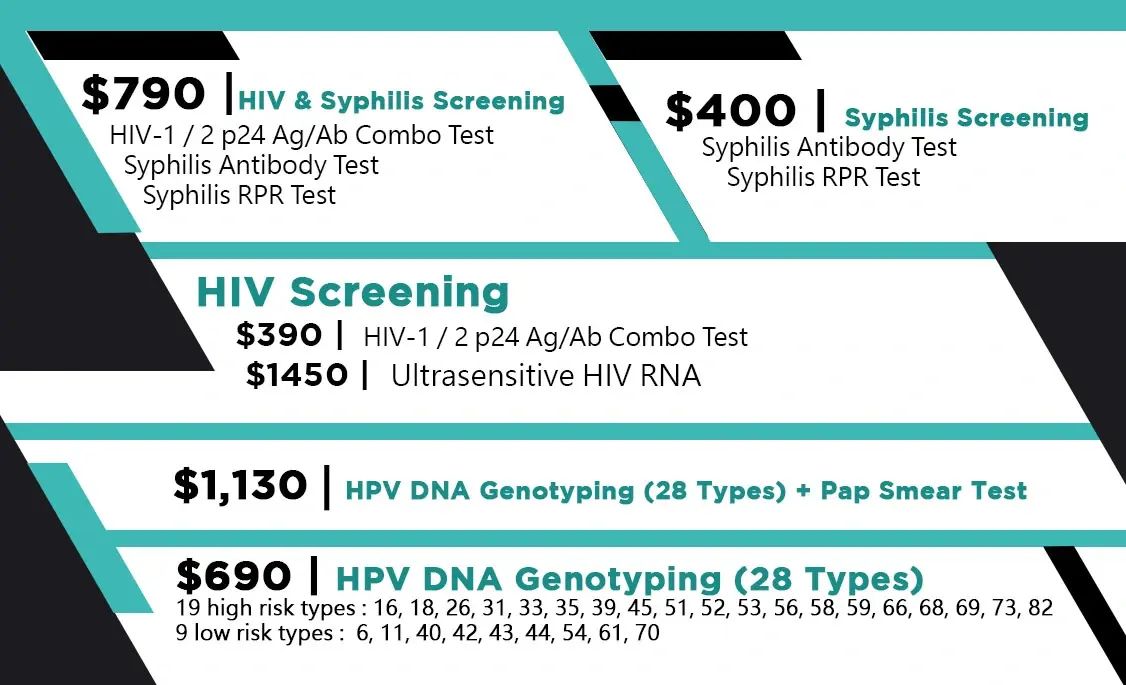
Who Should Get Tested?
- Sexually active individuals under 25
- Those with multiple partners
- Men who have sex with men
- Pregnant women
- Anyone with symptoms
- People with new sexual partners
STD Treatment
Bacterial-caused STDs can be treated by taking antibiotics and other drugs. Patients must comply with all the drugs prescribed by the doctor in order to effectively and completely cure STDs. In addition, sexual partners who have been infected should also be checked and treated at the same time, otherwise, you may be infected again.
For patients who have been infected by a virus, treatment or other methods can greatly reduce the discomfort caused by the symptoms, or help reduce the chance of recurrence.
While receiving treatment, you should adopt safe sex or avoid any sexual contact to avoid spreading sexually transmitted diseases to others, and you should remember to follow the guidelines to complete the entire course of treatment.
To ensure complete cure and control of STDs, you must still undergo follow-up examinations by a doctor or clinic after you recover.

(Text Only)

